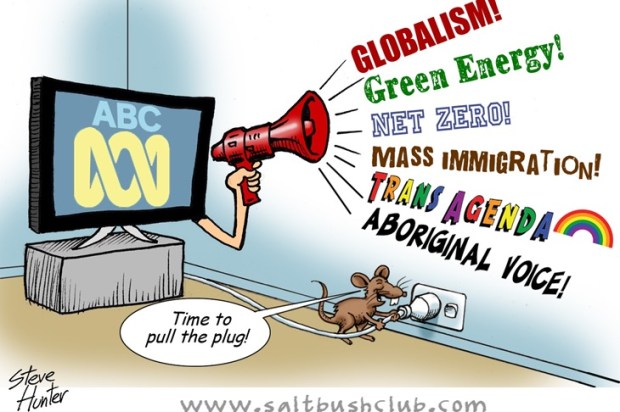Last year, Bryan W. Van Norden, professor of philosophy at Wuhan University, Yale-NUS College and Vassar College (and the author of “Taking Back Philosophy: A Multicultural Manifesto”) authored an opinion piece for The New York Times titled “The Ignorant Do Not Have a Right to an Audience”.
You might be surprised – or then again you might not – that a tenured academic specialising in philosophy, that discipline which relies the most on debate and argument and where the answers are never final since it has no anchor in scientifically established facts, wants to silence other people, such as Ann Coulter, Jordan Peterson and Charles Murray (and Kellyanne Conway). This is because Van Norden argues that John Stuart Mill’s concept of beneficial free speech is essentially outdated and unscientific:
The problem with Mill’s argument is that he takes for granted a naïve conception of rationality that he inherited from Enlightenment thinkers like René Descartes. For such philosophers, there is one ahistorical rational method for discovering truth, and humans (properly educated) are approximately equal in their capacity for appreciating these truths…
If you do have faith in a universal method of reasoning that everyone accepts, then the Millian defense of absolute free speech is sound. What harm is there in people hearing obvious falsehoods and specious argumentation if any sane and minimally educated person can see through them? The problem, though, is that humans are not rational in the way Mill assumes.
Well, some are – like Van Norden and his colleagues – but a lot of us simply can’t be expected to get it right. Hence Van Norden’s proposal:
However, our situation is very different from that of Mill. We are seeing the worsening of a trend that the 20th century German-American philosopher Herbert Marcuse warned of back in 1965: “In endlessly dragging debates over the media, the stupid opinion is treated with the same respect as the intelligent one, the misinformed may talk as long as the informed, and propaganda rides along with education, truth with falsehood.” This form of “free speech,” ironically, supports the tyranny of the majority…
Marcuse was insightful in diagnosing the problems, but part of the solution he advocated was suppressing right-wing perspectives. I believe that this is immoral (in part because it would be impossible to do without the exercise of terror) and impractical (given that the internet was actually invented to provide an unblockable information network). Instead, I suggest that we could take a big step forward by distinguishing free speech from just access. Access to the general public, granted by institutions like television networks, newspapers, magazines, and university lectures, is a finite resource. Justice requires that, like any finite good, institutional access should be apportioned based on merit and on what benefits the community as a whole.
How enlightened of Van Norden (I hope he doesn’t consider an association with the Enlightenment to be too insulting) – he won’t suppress right-wing perspectives; he will just use the public gatekeepers to deplatform anyone suspected of wrongthink. It goes without saying that what is meritorious and what benefits the community as a whole can of course only be judged by the highly intelligent and rational individuals like him.
Why write now about the year-old elitist ravings of a Wuhan academic (Van Norden’s philosophy must be going down particularly well with the Chinese Communist Party, which operates on very similar principles)?
Because the piece has now been recognised by the American Philosophical Association (or, to be more precise, its committee on public philosophy) as one of the five best op-eds written by philosophers in 2018. The Association explains its annual op-ed contest:
The goal is to honor up to five standout pieces that successfully blend philosophical argumentation with an op-ed writing style. Winning submissions will call public attention, either directly or indirectly, to the value of philosophical thinking. The pieces will be judged in terms of their success as examples of public philosophy, and should be accessible to the general public, focused on important topics of public concern, and characterized by sound reasoning.
So Enlightenment bashing and Herbert Marcuse-inspired public censorship of ideas we don’t like has got the official imprimatur of America’s 9,000 or so philosophers.
This sort of attitude, needless to say, reflects to ideological homogeneity and groupthink in the profession. Some eleven years ago, of 375 philosophy professors working in California, Florida and North Carolina, 87.2 per cent were registered Democrats, with the further 2.7 per cent Green, versus 7.7 per cent Republican and 0.8 per cent Libertarian.
As Tristan J. Rogers, lecturer in the Department of Philosophy and Religious Studies at California State University, East Bay, recently (and courageously, no doubt) wrote in Quillette, “It is strange, for instance, how rarely philosophers agree about a wide range of thorny philosophical problems, and yet they appear to be unified on a range of complex issues that divide the American public roughly in half.” Interestingly, philosophy is not even the worst example; last year, Mitchell Langbert, an associate professor of business at Brooklyn College, published a study of the political affiliations of faculty members at 51 of the 66 liberal-arts colleges ranked highest by U.S. News in 2017:
Democrats dominate most fields. In religion, Langbert’s survey found that the ratio of Democrats to Republicans is 70 to 1. In music, it is 33 to 1. In biology, it is 21 to 1. In philosophy, history and psychology, it is 17 to 1. In political science, it is 8 to 1.
This is doubly worrisome. Firstly, though no doubt many academics are able not to let their personal beliefs affect unbiased teaching, generations of students are now overwhelmingly exposed to only some ideas, privileged by their lecturers. This is indoctrination, not education.
But worse, as Van Norden and the APA demonstrate, academics are increasingly not satisfied merely with actively championing their side – they actually want to shut down the debate completely by denying competing ideas a chance to be heard at all.
Somewhere out there, the ghosts of Gramsci and Marcuse and grinning with the satisfaction of a job well done.
Arthur Chrenkoff blogs at The Daily Chrenk, where this piece also appears.
Got something to add? Join the discussion and comment below.
Got something to add? Join the discussion and comment below.
Get 10 issues for just $10
Subscribe to The Spectator Australia today for the next 10 magazine issues, plus full online access, for just $10.


























Comments
Don't miss out
Join the conversation with other Spectator Australia readers. Subscribe to leave a comment.
SUBSCRIBEAlready a subscriber? Log in